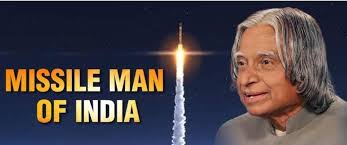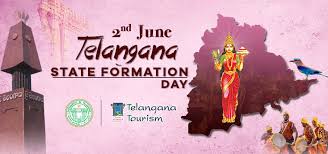Christian festivals
Christian festivals
The four main Christian festivals commonly recognized are:
Christma Date:December 25
Significance:
Celebrates the birth of Jesus Christ.Easter
Date: Varies each year (between March 22 and April 25)
Significance: Celebrates the resurrection of Jesus from the dead.Christian festivals
Date: The Friday before Easter Sunday
Significance: Commemorates the crucifixion and death of Jesus Christ.
Pentecost
Date: 50 days after Easter
Significance: Celebrates the descent of the Holy Spirit on the apostles, marking the birth of the Christian Church.
These festivals are widely observed across many Christian denominations, though there are other important festivals as well (such as Lent, Ascension Day, and Epiphany) depending on the tradition.
The number of Christian festivals in a year depends on the denomination (e.g., Catholic, Orthodox, Protestant) and the specific liturgical calendar followed. However, here are some of the key Christian festivals commonly observed throughout the year: Christian festivals 12
Major Christian Festivals (Widely Celebrated)
- Christmas –Birth of Jesus (Dec 25)
- Epiphany – Visit of the Magi / Baptism of Jesus (Jan 6)
- Ash Wednesday – Start of Lent (date varies)
- Maundy Thursday – Last Supper (Thursday before Easter)
- Good Friday – Crucifixion of Jesus (Friday before Easter)
- Easter Sunday – Resurrection of Jesus (date varies)
- Ascension Day – 40 days after Easter
- Pentecost – 50 days after Easter
- Trinity Sunday – Sunday after Pentecost
- All Saints’ Day – Honoring all saints (Nov 1)
- Advent – Four Sundays leading up to Christmas
Other Notable Observances (Varies by Tradition)
- Lent (40-day period of fasting before Easter)
- Feast of the Annunciation (Mar 25)
- Feast of the Transfiguration (Aug 6)
- Christ the King Sunday (Last Sunday before Advent)
In Total:
Depending on how you count them, there are around 10–15 major Christian festivals celebrated annually. In more liturgical traditions like Roman Catholicism and Eastern Orthodoxy, dozens more feast days honoring saints and events are observed throughout the year. Christian festivals 12 month
The Christian year, also known as the liturgical calendar, is structured around the life of Jesus Christ and the major events of Christian faith. It includes a cycle of seasons and festivals celebrated annually by many Christian denominations, especially in liturgical traditions such as Roman Catholic, Orthodox, Anglican, and Lutheran churches. Christian festivals 12 month
When: Begins fourSundays before Christmas.
Focus: Anticipation of Christ’s coming—both his birth and his second coming.
Themes: Hope, preparation, waiting, and light.
🎄 2. Christmas
When: December 25
Focus: Celebration of the birth of Jesus Christ.
Season: The Christmas season (or Christmastide) lasts 12 days, ending on January 5.
🎁 3. Epiphany
When: January 6
Season: Sometimes a season until Lent (especially in Western Christianity).
🙏 4. Lent
When: Begins on Ash Wednesday (40 days before Easter, not counting Sundays).
Includes:
Ash Wednesday
Holy Week, which contains:
Palm Sunday (Jesus’ entry into Jerusalem)
Maundy Thursday (Last Supper)
Good Friday (Crucifixion)
Holy Saturday
✝️ 5. Easter
When: Begins on Easter Sunday (date varies; first Sunday after the first full moon after March 21).
Focus: Celebration of the Resurrection of Jesus.
Season: Eastertide lasts 50 days, ending on Pentecost.
🔥 6. Pentecost
When: 50 days after Easter
⛪ 7. Ordinary Time
When: Follows Pentecost until Advent (also a shorter segment between Epiphany and Lent).
Focus: Growth in faith, teachings of Jesus, and daily Christian living.
Color: Green, symbolizing growth and life.
Other Celebrated Days
Would you like a visual calendar or chart of these festivals and seasons?
The biggest festival in Christianity is Easter.
🕊️ Easter: The Most Important Christian Festival
Why Easter is the Most Significant:
It celebrates the resurrection of Jesus Christ from the dead.
It is the foundation of Christian faith—Christ’s victory over sin and death.
The Apostle Paul emphasized this in 1 Corinthians 15:17:
Spiritual Meaning:
Hope and new life
Redemption and forgiveness
Assurance of eternal life
When it Happens:
Easter Sunday falls on the first Sunday after the first full moon following the spring equinox (usually between March 22 and April 25).
Related Days and Season:
Begins with Lent (a 40-day period of preparation)
Culminates in Holy Week:
Palm Sunday
Maundy Thursday
Good Friday (Jesus’ crucifixion)
Holy Saturday
Easter Sunday (Resurrection)
Followed by Eastertide, a 50-day celebration ending at Pentecost
While Christmas (Jesus’ birth) is widely celebrated culturally and has a major global presence, Easter holds the deepest theological and spiritual importance for Christians.
The Bible, particularly the Old Testament, mentions several festivals that were ordained by God for the people of Israel. These are often called biblical feasts or Jewish festivals, and they were central to the worship and rhythm of life for God’s people. Most are found in Leviticus 23, where God commands the Israelites to observe them.
Here’s a list of the main festivals mentioned in the Bible, especially the Old Testament:
📜 Bible Festivals (Primarily in the Old Testament)
- Passover (Pesach)
When: 14th day of the first month (Nisan)
Meaning: Commemorates the Israelites’ deliverance from Egypt
New Testament Significance: Jesus is seen as the “Lamb of God” and crucified during Passover.
- Feast of Unleavened Bread
When: Immediately after Passover, lasts 7 days
Meaning: Remembers the haste in which Israel left Egypt—no time for leavened bread
Practice: Eat bread without yeast
3. Feast of Firstfruits
When: The day after the Sabbath during Unleavened Bread
Meaning: Offering of the first harvest to God
New Testament Connection: Christ’s resurrection is considered the “firstfruits” (1 Corinthians 15:20)
- Feast of Weeks (Pentecost / Shavuot)
When: 50 days after Firstfruits
Meaning: Thanksgiving for the wheat harvest
New Testament: The Holy Spirit was given on Pentecost (Acts 2)
- Feast of Trumpets (Rosh Hashanah)
When: 1st day of the 7th month (Tishri)
Future Significance (for some): Believed to foreshadow Christ’s return
- Day of Atonement (Yom Kippur)
When: 10th day of the 7th month
Meaning: Holiest day; national atonement for sins
Christ Connection: Seen as fulfilled in Jesus’ atoning sacrifice (Hebrews 9)
- Feast of Tabernacles (Booths / Sukkot)
Meaning: Remembers Israel’s time living in tents in the wilderness
Future/Fulfillment View: Symbolizes God dwelling with His people
✝️ Christian Festivals (Rooted in Bibel Events)
While not commanded in the Old Testament, the New Testament events have led to Christian festivals such as:
Christmas – Birth of Jesus (not specifically commanded but based on biblical narrative)
Good Friday – Jesus’ crucifixion
Easter – Resurrection of Jesus
Pentecost – Coming of the Holy Spirit
✅ Total Number of Biblical Festivals (Old Testament): 7 Major Feasts
These are the feasts directly commanded by God in the Old Testament, mainly in Leviticus 23.
Would you like a chart comparing these feasts with their New Testament or Christian counterparts?
The main Christian festival in December is:
🎄 Christma
Date: December 25
Meaning: Celebrates the birth of Jesus Christ, the Son of God and Savior in Christian belief.
Biblical Basis: Based on the accounts of Jesus’ birth in Matthew 1–2 and Luke 1–2.
Key Themes: Hope, peace, joy, love, incarnation (God becoming human)
🕯️ Related Season: Advent
When: Starts four Sundays before Christmas (late November or early December)
Traditions: Lighting Advent candles, Scripture readings, prayers, and reflection.
Other December Christian Observances (Depending on Tradition):
Feast of St. Nicholas – December 6
St. Stephen’s Day – December 26 (also called Boxing Day in some cultures)
Feast of the Holy Innocents – December 28 (remembering the children killed by Herod)
Would you like ideas for how to celebrate Advent or Christmas in a more meaningful or traditional Christian way?




